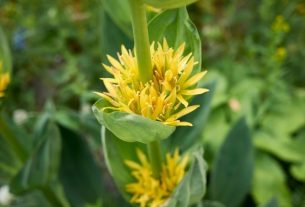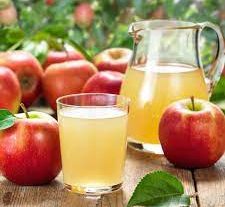Dandelion is a plant that has several health benefits, such as protecting the liver, preventing heart disease, stimulating weight loss, helping to control diabetes and promoting gastrointestinal health, as it is rich in vitamins. , inulin, phytosterols, amino acids and minerals.
The scientific name of the dandelion is Taraxacum officinale and can also be known as monk’s crown, quart and taráxaco.
Dandelion can be consumed in the form of tea or in its natural form, mainly for preparing salads, recipes and juices.

What is it for
Dandelion has several health benefits, serving to:
1. Protect the liver
Some studies have confirmed that the polyphenols, flavonoids and polysaccharides present in this plant have beneficial effects on liver functions, helping to reduce inflammation and oxidative damage that are common in liver disorders. Furthermore, dandelion acts as a liver protector in the presence of toxic substances, such as industrial chemical agents and medications in higher doses.
Furthermore, this plant helps to regenerate the liver and reduce accumulated fat levels, being useful to help treat hepatitis and cystic fibrosis, for example.
2. Prevent heart disease
The natural bioactive substances in dandelion have hypocholesterolemic and antioxidant properties, which are effective in preventing the formation and/or progression of atherosclerosis.
Some studies have shown that dandelion leaves help prevent oxidative damage to cells and reduce levels of triglycerides and LDL cholesterol, also known as bad cholesterol, preventing the development of cardiovascular diseases and the development of a stroke.
3. Stimulate weight loss
Some studies indicate that dandelion roots have an anti-obesity effect, as they can act on lipid metabolism, reducing the size of fat cells and inhibiting their formation due to blocking pancreatic enzymes.
Furthermore, studies carried out with extracts from the leaves and raw roots of dandelion have shown that this plant is capable of promoting the reduction of triglyceride levels in the body, helping to reduce body weight.
4. Help control diabetes
Some studies carried out in patients with type 2 diabetes treated with dandelion leaf and root powder, demonstrated a significant reduction in fasting blood glucose levels in these patients, as it could have an effect on insulin production and act as a hypoglycemic agent.
5. Help prevent cancer
Dandelion extract contains triterpenoids, sesquiterpenes and phenolic compounds, which are potent natural antioxidants, with anti-cancer action.
Some studies confirm that dandelion root extract can inhibit the growth of cells from different types of cancer, such as colorectal and breast cancer, among others.
6. Promote gastrointestinal health
Dandelion roots are rich in oligofructans, also known as prebiotics, which act as a source of carbon and energy to stimulate healthy intestinal bacteria.
Thus, this plant would be able to help combat constipation and prevent the development of intestinal disorders such as hemorrhoids and diverticulosis.
Additionally, dandelion could improve symptoms related to mild digestive problems, such as feeling full, flatulence and slow digestion.
7. Help treat the flu
According to a study carried out in China in 2011, dandelion can also help in the treatment of flu, and it was observed that teas with more than 15 mg/mL of dandelion appear to eliminate the Influenza virus from the body.
However, it is important that the consumption of dandelion tea is complementary to the treatment indicated by the doctor, as this ensures the elimination of the virus and promotes recovery.
8. Diuretic action
Dandelion has potassium, which guarantees its diuretic action, so it can be used to complement the treatment of urinary infections, fluid retention and high blood pressure, and should be used according to medical recommendations.
9. Relieve constipation
Dandelion has tonic and purifying properties that improve bowel function and help eliminate feces, making it a good option for constipation.
10. Act against bacteria
Dandelion is rich in antioxidant and antibacterial compounds such as flavonoids, saponins and phenols, which contain immunological properties that act against microorganisms, such as bacteria. Staphylococcus aureus e Escherichia colipreventing and helping to treat bacterial infections.
Dandelion properties
Dandelion contains natural substances that guarantee health benefits, such as phenolic compounds, flavonoids, carotenoids and oligofructans, guaranteeing this plant antioxidant, anti-inflammatory, hepatoprotective, antihypertensive, anti-flu and digestive properties. , prebiotics, diuretic, anti-cancer, hypolipidemic, anti-obesity and hypoglycemic, helping to prevent and treat different diseases.
How to use dandelion
You can use dandelion root or leaves to prepare teas, tinctures and juices. Furthermore, it can be found alone or combined with other medicinal plants in the form of capsules or tablets, which can be found in pharmacies or health food stores. However, dandelion supplementation is not recommended due to a lack of scientific evidence about its effects in people.
1. Dandelion tea
Ingredients
- 2 teaspoons of crushed or powdered dandelion root;
- 200 ml of boiling water.
Preparation mode
To prepare the tea, simply add boiling water with a spoonful of root and let it steep for 10 minutes. Then strain, let cool and drink up to 3 times a day. In case of gastrointestinal problems, you should drink the tea before meals.
2. Dandelion Juice
Ingredients
- Young dandelion leaves;
- Coconut Water.
Preparation mode
Blend the leaves in a processor, along with coconut water and take three times a day. Generally, dandelion leaves have a bitter taste and, therefore, you should use younger ones, whose flavor is less intense.
Additionally, other ingredients can be mixed, such as apple juice, mint and ginger, for example, to improve the flavor and give this juice more properties. Discover the properties of ginger.
3. Na forma natural
Dandelion can also be used in its natural form in cooking. Since it is a safe plant for consumption, dandelion can be used to prepare salads, soups and even some desserts.
When not indicated
Dandelion should also not be used by people who are hypersensitive to this plant, who have obstruction of the bile ducts or intestinal occlusion, acute inflammation of the gallbladder or the presence of a peptic ulcer.
The effects of dandelion during pregnancy and breastfeeding have not yet been confirmed and, therefore, its use during this period is not recommended.
Furthermore, it is not recommended to consume this medicinal plant together with diuretic and hypoglycemic medications, as dandelion could enhance the effects, and it should not be used by people who use lithium.
Possible side effects
Dandelion is considered safe and is well tolerated due to its low level of toxicity.
However, although rare, it can cause gastrointestinal disorders or allergic reactions in sensitive people, due to the presence of allergenic components such as taraxinic acid and sesquiterpene lactone.

Sign up for our newsletter and stay up to date with exclusive news
that can transform your routine!
Warning: Undefined array key "title" in /home/storelat/public_html/wp-content/plugins/link-whisper-premium/templates/frontend/related-posts.php on line 12
Warning: Undefined array key "title_tag" in /home/storelat/public_html/wp-content/plugins/link-whisper-premium/templates/frontend/related-posts.php on line 13




